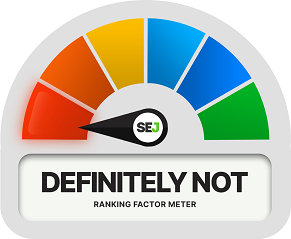Link Stability: Is It A Google Ranking Factor?

Link stability and its connection to search rankings has been in question since a patent describing “link churn” surfaced in 2006.
The stability of a website’s links, or the length of time links remain live on a page without being edited, is believed by some to generate signals that are used by Google’s algorithms.
Let’s take a look at the claims around link stability as a ranking factor, where they originate from, and whether there’s any evidence to back them up.
The Claim: Link Stability Is A Ranking Factor
A link is described as stable when it remains on a webpage for an extended period without any changes.
Changes that could disrupt a link’s stability include swapping out the URL and making adjustments to the anchor text.
A website is said to have high “link churn” when it makes frequent changes to the outbound links on its web pages.
Google filed a patent in 2005 describing a possible update to its search algorithm where link churn would be used as a ranking factor.
Here are excerpts from the patent from the time it was discovered in 2006:
- “The method of claim 54, further comprising: determining an indication of link churn for a linking document providing the linkage data; and based on the link churn, adjusting the ranking of the linked document.
- The method of claim 61, wherein the indication of link churn is computed as a function of an extent to which one or more links provided by the linking document change over time.
- The method of claim 62, wherein adjusting the ranking includes penalizing the ranking if the link churn is above a threshold.”
These are the above three points simplified:
- The algorithm update will evaluate a website’s link churn. That evaluation will be used to adjust the amount of weight given to outbound links.
- Link churn is calculated based on how often links and/or anchor text change on a particular website.
- Google may penalize websites if their link churn is above a certain threshold.
Ever since this patent surfaced, there have been claims that maintaining link stability is a factor for search rankings.
Based on these claims, should you be hesitant to adjust outbound links out of concern for this supposed negative signal?
Is there any reason to be concerned about link churn and link stability?
Here’s what the evidence says.
The Evidence For Link Stability As A Ranking Factor
Google’s patent referencing link churn was filed back in 2005. An archive remains viewable on the web, but has since been revised numerous times.
The version of the patent that exists today makes no reference to link churn or anything similar. That’s a strong indicator that if link stability ever was a ranking factor, it hasn’t been relevant in years.
Besides, a patent is just a patent. Companies file patents all the time with ideas that never make it to market.
Google occasionally has to remind us that not everything it patents is used in search results.
Link Stability Is Definitely Not A Ranking Factor

While the original patent referencing link churn provides circumstantial evidence that link stability matters, the lack of direct confirmatory evidence casts doubt on its relevance today.
Google hasn’t offered official guidance or comments stating that link stability or churn is part of its core ranking algorithms.
Quite the opposite – Google is transparent about disclosing major ranking factors through comments, help docs, and webmaster videos. Yet Google has been conspicuously silent for over 15 years about any ongoing use of link stability as a signal.
This silence speaks volumes. If churn did impact rankings, Google search representatives would probably have reiterated that in public communications by now. Of course, there are reasons why they might not, but it doesn’t seem likely.
Further, the original patent referencing link churn has been revised multiple times to remove any mention of these concepts.
Given the dated nature of the original patent filing and the absence of corroborating signs from Google, link stability isn’t a ranking factor.
Large and small sites routinely update outbound links without incurring any penalties. Feel free to edit links as needed without worrying about ranking impacts.
Featured Image: Paulo Bobita/Search Engine Journal
Source link : Searchenginejournal.com



